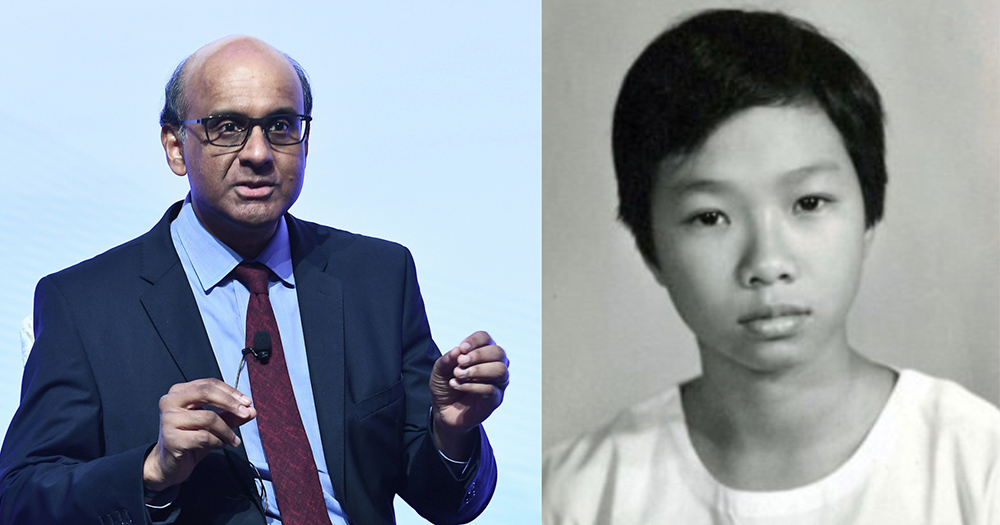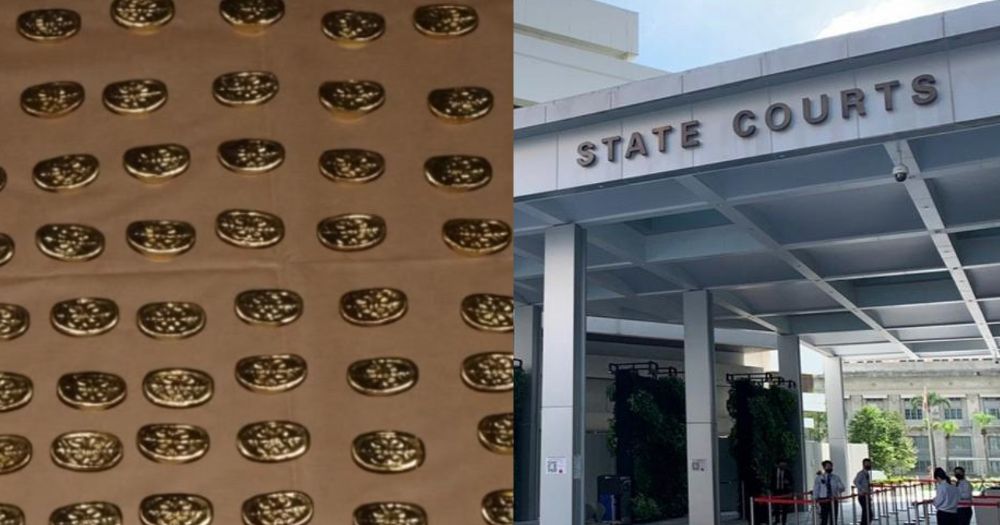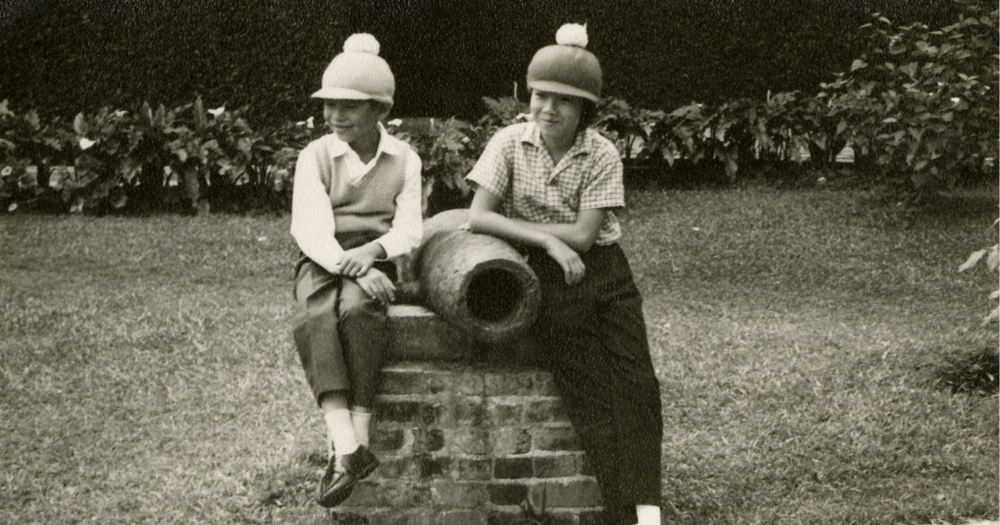Do firms really treasure employees? Just ask this OCBC team lead who got promoted despite brain tumour diagnosis at 32.
An uncommon experience.
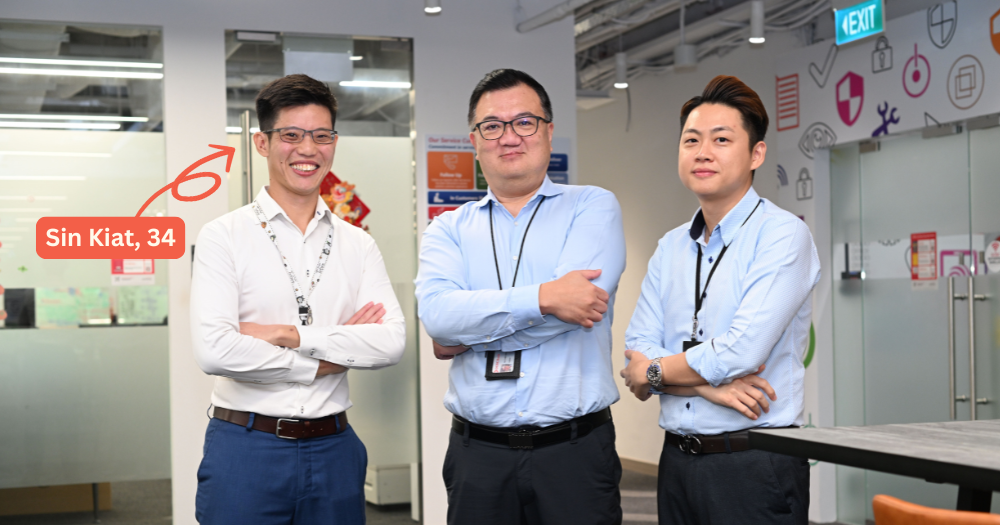
34-year-old Chew Sin Kiat’s world was shaken up in May 2022. And it all started with a tiny grain of rice.
“I was eating dinner and my wife told me there was a grain of rice on my right cheek, but I didn’t feel it,” Chew told Mothership.
There were other concerning developments.
“I realised that if I rubbed my eyes, I didn’t feel the itch go away. And if I tapped the right side of my face all the way to the top of my skull, I couldn’t feel anything on the right half of my face.”
A sudden diagnosis
Chew, whose work involves cybersecurity operations at OCBC Bank, got his answer in June after a specialist review: a tumour at the back of his head, growing on a nerve that affects hearing.
The tumour, called an acoustic neuroma, had grown to about 3 by 2 cm and pressed upon his brainstem and facial nerves, which resulted in the numbness.
Chew responded decisively by opting to have the tumour removed through surgery and radiation.
And in less than two months from the day his wife spotted that small grain of rice on his cheek, Chew was tumour-free and recuperating in hospital — except for one small hitch.
About a week after the surgery, Chew was using his phone when he realised that something was amiss.
“When I put the phone against my right ear, I realised the sound was very soft. I realised I was hearing the sound from my phone through my left ear instead of my right ear.”
He had lost all hearing in his right ear.
The hearing loss was not unexpected; Chew’s surgeon had warned him that there was a high possibility of it happening because the tumour sat on his hearing nerve.
But knowing is not the same as experiencing. In addition, the damage to the nerve meant that it would no longer be able to transmit sounds to his brain. This means that even with a hearing aid, Chew would never hear from his right ear again.
Radically different work environment
If you were in Chew’s shoes — then a 32-year-old employee with a corporate job and a young family, suddenly dealt with permanent hearing loss and a three-month recovery process — what would be your biggest worry?
In a market where employees can be easily replaced, job security perhaps?
But not for Chew. In fact, his boss and colleagues have shown tremendous support, which according to him, played a big part in his recovery.
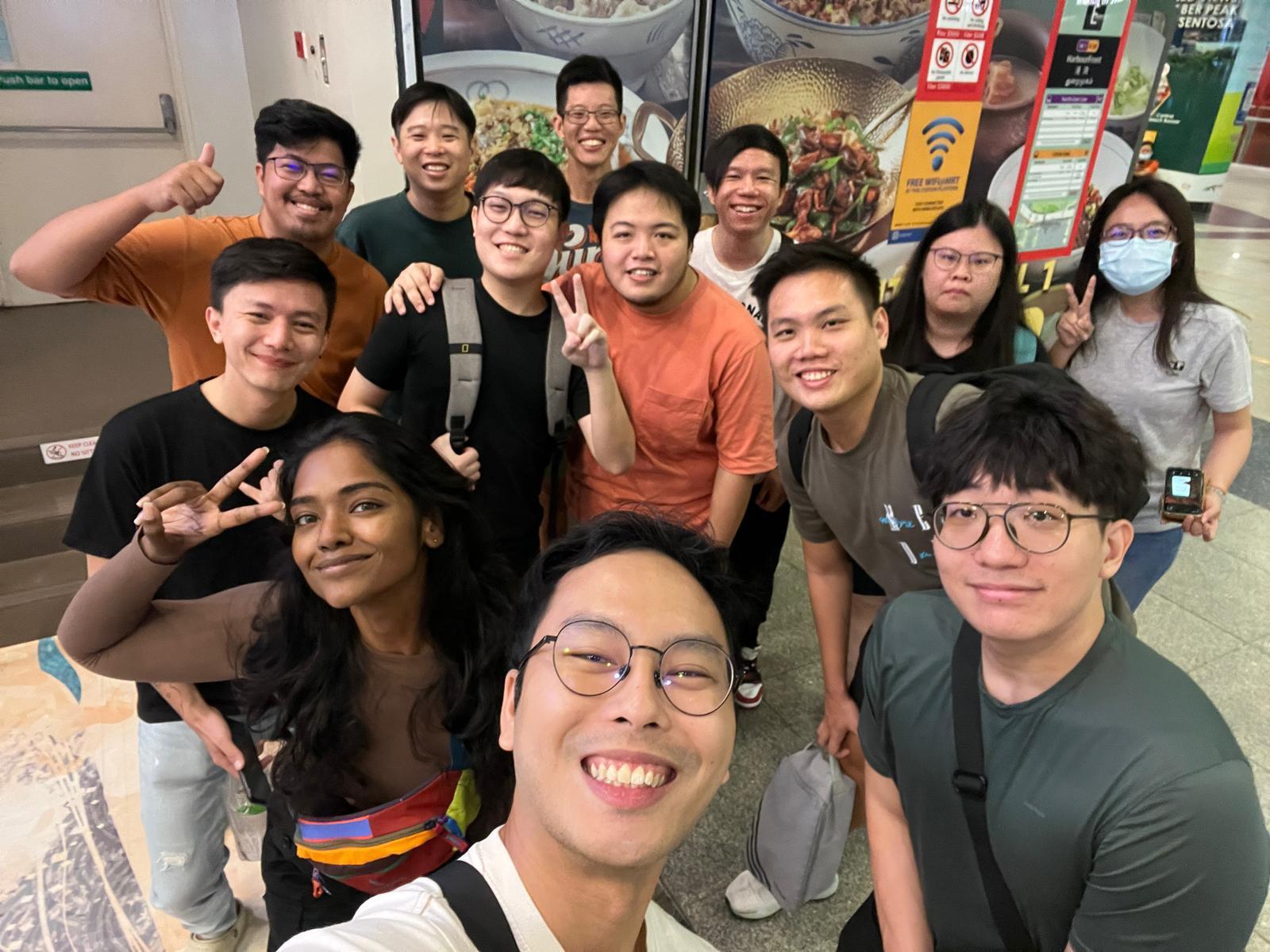 Image courtesy of OCBC
Image courtesy of OCBC
Even before the surgery, Chew’s direct manager, Yap Ji Wen, was adamant that he devote his energies to recovering.
“When I told him I needed to speak to him, his first thought was that I was going to quit and he was relieved to find out that I wasn’t. And when I tried to tell him about the things I was working on and who I’d be handing over to, he told me he would sort it out, and advised me to focus on my recovery.”
It was the same thing with Chew’s head of department, David Ng, who advised him “not to worry about work…and take extra time off if needed”.
 Image courtesy of OCBC
Image courtesy of OCBC
His manager and boss also visited him at home post-surgery to provide moral support and assure him that he was not going to lose his job. His division head even instructed Chew’s boss to support him through his recovery.
“People don't leave their jobs. They leave their bosses.”
Frankly, such grace is uncommon — radical even — in most workplaces and Chew knows it.
“I think I'm pretty fortunate to have good bosses. There's a saying that goes, ‘People don't leave their jobs. They leave their bosses.’”
It’s “very true and applicable” to Chew who has been with OCBC for a decade; he credits this longevity to having wonderful colleagues and bosses who care.
“Having good bosses is a large part of why I stayed with OCBC for so long.”
Obviously, Chew’s diligence and good performance at work play no small part.
In fact, after he returned from his long leave in September, Chew received recognition in the form of a promotion earlier this year.
Yes, you read that right. Instead of passing him over due to his months-long absence from work, OCBC promoted him and placed him in charge of a bigger team.
 With a clean bill of health, Sin Kiat has returned to old hobbies, including frisbee. Photo courtesy of OCBC.
With a clean bill of health, Sin Kiat has returned to old hobbies, including frisbee. Photo courtesy of OCBC.
A renewed conviction
There’s one more thing that Chew’s brush with acoustic neuroma had left him: a renewed conviction about the importance of being insured.
“I have always believed that it is important to be adequately covered, at least for the important things like life protection, hospitalisation, accident plans, critical illness…and then after this incident, I felt even more so.”
You see, insurance, together with MediSave, covered the cost of his surgery and provided a payout that not only covered his expenses but also gave him the funds to buy insurance coverage for his elderly parents who were, in his words, “non-believers of health insurance”.
Being covered by insurance also meant that Chew’s young family had one less big expense to worry about.
Chew said that for young families with many financial commitments, it is even more imperative that they set aside money for insurance — because if something unfortunate happens, they will be able to fulfil their financial obligations.
“Now, I always use myself as an example to tell friends and family that it's important to get at least some minimal coverage so that you don’t need to worry about being able to afford treatment.”
This article was sponsored by OCBC Bank.
Top photo courtesy of OCBC.
MORE STORIES






